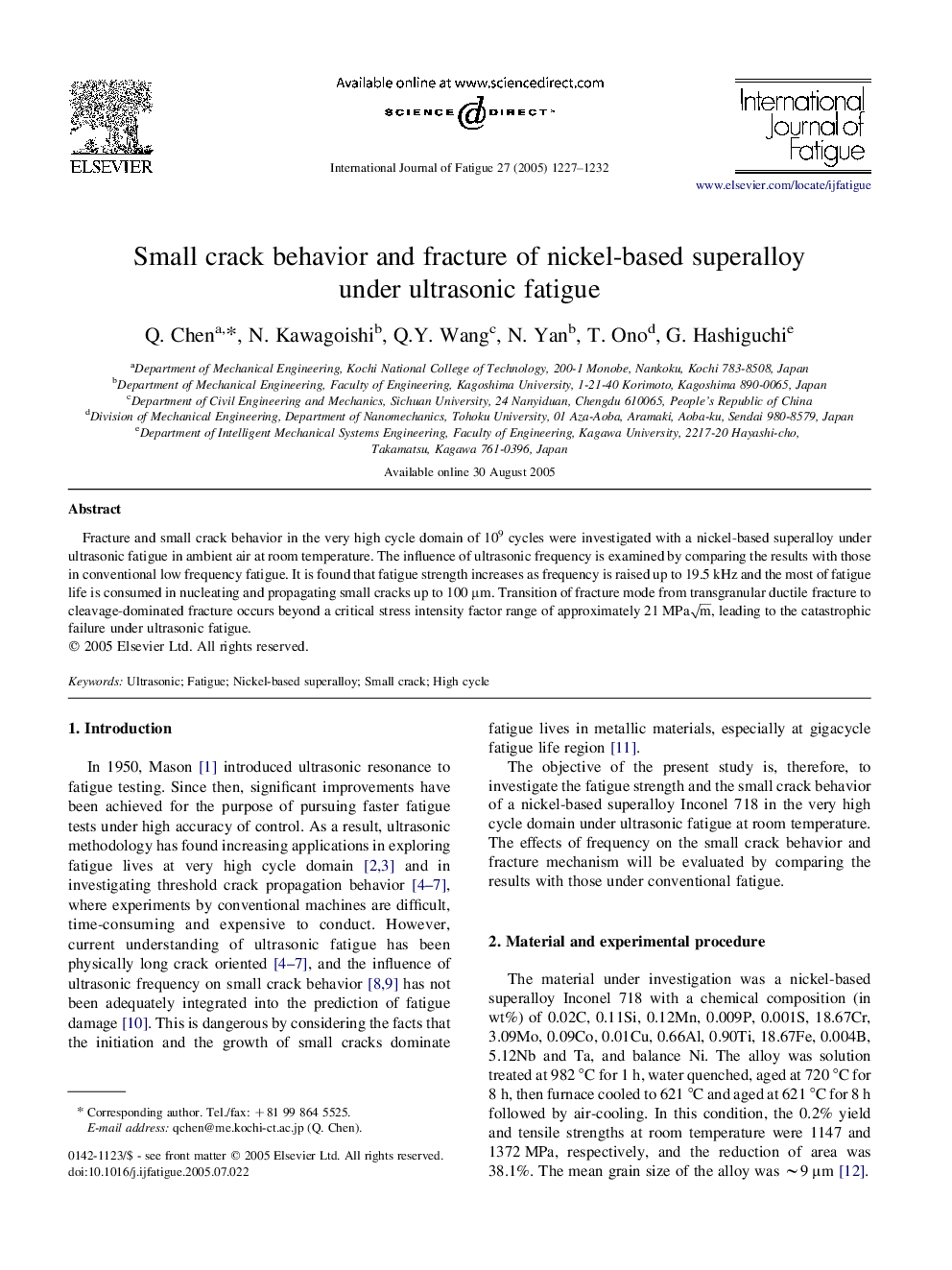| Article ID | Journal | Published Year | Pages | File Type |
|---|---|---|---|---|
| 9703860 | International Journal of Fatigue | 2005 | 6 Pages |
Abstract
Fracture and small crack behavior in the very high cycle domain of 109 cycles were investigated with a nickel-based superalloy under ultrasonic fatigue in ambient air at room temperature. The influence of ultrasonic frequency is examined by comparing the results with those in conventional low frequency fatigue. It is found that fatigue strength increases as frequency is raised up to 19.5 kHz and the most of fatigue life is consumed in nucleating and propagating small cracks up to 100 μm. Transition of fracture mode from transgranular ductile fracture to cleavage-dominated fracture occurs beyond a critical stress intensity factor range of approximately 21MPam, leading to the catastrophic failure under ultrasonic fatigue.
Related Topics
Physical Sciences and Engineering
Engineering
Mechanical Engineering
Authors
Q. Chen, N. Kawagoishi, Q.Y. Wang, N. Yan, T. Ono, G. Hashiguchi,
